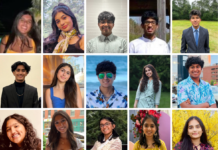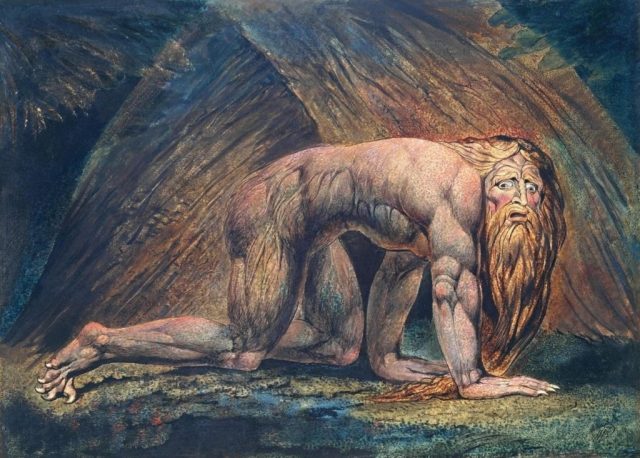
By Upendra Mishra
BOSTON—Every year when a year ends and new one starts, we go in a deep reflective mood, and pledge to take some drastic actions to improve our lives in the New Year. It is a good exercise, and most of us do it every year. But before we make our New Year resolutions, it better to ask some basic questions as what we want to fix. The catch is: we want a permanent solution. No short-cut because we know a short-cut to anything leads to a disaster at the end.
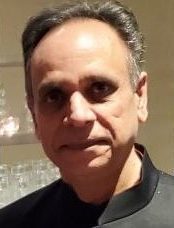 If you answer “NO” the following five questions, you don’t need a New Year resolution. Just open a bottle of champagne or your favorite drink and start celebrating right now with your friends and family. You don’t need to do anything. Just keep doing what you have already doing. But if you answer “Yes” to any three of the following questions, your life is completely screwed up and is a disaster. You need to work hard to fix these problems at their root. No short-cut or any patch-up work will be of any help.
If you answer “NO” the following five questions, you don’t need a New Year resolution. Just open a bottle of champagne or your favorite drink and start celebrating right now with your friends and family. You don’t need to do anything. Just keep doing what you have already doing. But if you answer “Yes” to any three of the following questions, your life is completely screwed up and is a disaster. You need to work hard to fix these problems at their root. No short-cut or any patch-up work will be of any help.
The five questions:
(1) Are you always trying to fit in?
(2) Are you a perfectionist—always trying to show the world how perfect you are in everything you do—from dressing and looking best to working hard to caring and loving—and you name it?
(3) Are you always trying to please people?
(4) Are your always trying to prove yourself to everyone?
(5) Are you ashamed of your imperfections, failures or your weaknesses?
If you have answered “Yes” to three of the five questions above, you will also find the following symptoms in your personal, professional, business or daily life:
- A few things keep happening repeatedly in your life—well, they go away for a while, but keep returning. Examples: you keep fighting and arguing with your loved ones repeatedly; repeating same mistakes with family, friends, business or professional life; your feel you are in a vicious cycle and you cannot get out of this rut.
- You are always tired, exhausted, frustrated, stressed and feel like a failure when your compare yourself with your friends and even your own family members.
- You are obsessed with perfection; you always want a certain outcome from everything you do; you always want to be cool and fitting in; you always judge others or scared of being judged by others.
- You are always seek validation for every little, big or great things you do.
- You are constantly on your smart phone, browsing through for no reason, looking for something to pop up, or simply surfing through TV channels without looking for anything specific that you deliberately want to watch. In other word, you feel your life on the social media is more real than your real life.
In order to sort out the above symptoms, you may have read many self-help books, attended motivational seminars and speeches, listened to hundreds of TED talks, performed so many religious ceremonies and prayed, done what your astrologists, gurus or Godmen may have suggested you, but still you keep running in the same vicious cycle. You just cannot get out of this cycle.
The sad truth is that if you don’t fix this problem at the core or root level, it will keep happening. You have no option but to take a giant step, and look inside your own closet to find those skeletons you have hidden all these years; embrace your imperfections, love your vulnerabilities and weaknesses, and use your courage, compassion and connection to become who you truly are.
There is nothing wrong with you. You just have ignored yourself and not taken care of you. Do it now, and your fortune will change soon for the better. Just accept yourself the way you are. You are the most unique among the world’s 7.8 billion people. There is no one like you on this plant. You are as good as it gets. Tap into your own power and screw the opinion or judgement of others.
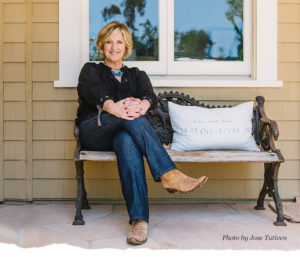
“Owning our story can be hard but not nearly as difficult as spending our lives running from it. Embracing our vulnerabilities is risky but not nearly as dangerous as giving up on love and belonging and joy—the experience that make us the most vulnerable,” says Brene Brown in her book “The Gifts of Imperfection: Let Go of Who You Think You’re Supposed to be and Embrace Who You Are” (published by Hazelden, 2010). “Only when we are brave enough to explore the darkness will we discover the infinite power of our light.”
She suggests three tools for reclaiming our peace, joy and happiness and start living a wholehearted life: Courage, Compassion and Connection. She, however, has a different but very unique and comprehensive definition of these terms.
Courage
Brown says that courage originally meant to speak one’s mind by telling all one’s heart. “Heroics is important and we certainly need heroes, but I think we’ve lost touch with the idea that speaking honestly and openly about who we are, about what we’re feeling, and about our experiences (good and bad) is the definition of courage. Heroics is often about putting our life on the line. Ordinary courage is about putting our vulnerability on the line. In today’s world, that’s pretty extraordinary,” she adds.
Compassion
Brown says that compassion means “to suffer with.” “Compassion is not a relationship between the healer and the wounded. It’s a relationship between equals. Only when we know our own darkness well can we be present with the darkness of others. Compassion becomes real when we recognize our shared humanity.”
Connection
Brown says human being are wired for connection. “I define connection as the energy that exists between people when they feel seen, heard, and valued: when they can give and receive without judgement; and when they derive sustenance and strength from the relationship,” says Brown.
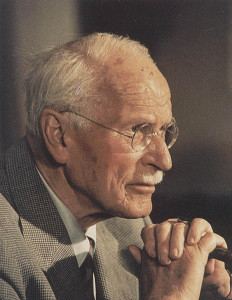
Swiss physician and psychoanalyst Carl Jung (1875-1961) also dealt with imperfection and vulnerability phenomenon. He call is shadow.
“The shadow personifies everything that the subject refuses to acknowledge about himself,” Jung wrote. This shadow approach did help me look at my own darker sides and fix them. Whether we acknowledge or not, we all carry our darker sides in our chest. “One does not become enlightened by imagining figures of light, but by making darkness conscious.”
In 1938 in Psychology and Religion, Jung wrote: “Unfortunately there can be no doubt that man is, on the whole, less good than he imagines himself or wants to be. Everyone carries a shadow, and the less it is embodied in the individual’s conscious life, the blacker and denser it is. If an inferiority is conscious, one always has a chance to correct it. Furthermore, it is constantly in contact with other interests, so that it is continually subjected to modifications. But if it is repressed and isolated from consciousness, it never gets corrected.”
Years later in 1951 in Aion, Jung wrote: “The shadow is a moral problem that challenges the whole ego-personality, for no one can become conscious of the shadow without considerable moral effort. To become conscious of it involves recognizing the dark aspects of the personality as present and real. This act is the essential condition for any kind of self-knowledge.”
This concept of shadow was explained nicely in an article on “The Shadow Dance” I had read many years ago. It was written by Rebeca Eigen and printed in the Indigo Sun in the August 1999 issue and an edited version was reprinted in Conscious Living Magazine in their Winter Issue 2000.
Here are a few excerpts from The Shadow Dance article by Eigen:
“The Shadow, is a psychological term introduced by the late Swiss psychiatrist, Dr. Carl G. Jung. It is everything in us that is unconscious, repressed, undeveloped and denied. These are dark rejected aspects of our being as well as light, so there is positive undeveloped potential in the Shadow that we don’t know about because anything that is unconscious, we don’t know about.
The Shadow is an archetype. And what an archetype simply means is that it is typical in consciousness for everyone. Everyone has a Shadow. This is not something that one or two people have. We all have a Shadow and a confrontation with the Shadow is essential for self awareness. We cannot learn about ourselves if we do not learn about our Shadow so therefore we are going to attract it through the mirrors of other people.”
Eigen adds: “The first thing we have to do in order to begin to see our Shadowsides, is to take 100% responsibility for our lives. This is a very difficult thing to do and no one does this overnight so we have to be patient with ourselves.
Being in the human experience, we have all had many painful, difficult experiences where it clearly looks like it is the other persons fault, or bad luck in life or whatever else we want to call it. So taking total responsibility for what appears to come to us is no easy task but it is well worth the effort because when we take responsibility for what happens to us, we can then learn and grow from our experiences and make new choices for ourselves.
Changing our attitude from blame to responsibility will change what happens next in our world. Our destiny is of our own making and what goes on inside of us will be reflected outside of us all the time.
I am very fond of this ancient axiom given to us by the alchemists of long ago: “As above, so below, as within, so without, so that the miracle of the one can be established.” What it is saying is that what is within us, will also be oustide of us. Inner states of consciousness will be reflected in outer situations time and time again. If we are willing to look at the significance of these repeating patterns, we will see the synchronicity of events and situations and ultimately once integrated the miracle of the one is established as we become one with ourselves.”
Becoming one with ourselves is also the core message of Upanishads, and that is how we make our own destiny. This concept is beautifully stated in Brihadaranyaka Upanishad: “You are what your deep, driving desire is. As your desire is, so is your will. As your will is, so is your deed. As your deed is, so is your destiny.”
Happy New Year!
(Mr. Mishra is managing partner of the Waltham, MA-based integrated inbound marketing and PR firm The Mishra Group. He writes about his three passions: marketing, scriptures and gardening.)







